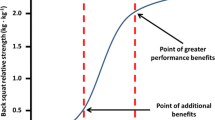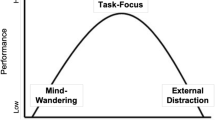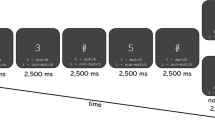Abstract
In emphasising improvement, smooth coping and success over variability and regression, skill theory has overlooked the processes performers at all levels develop and rely on for managing bodily and affective fluctuations, and their impact on skilled performance. I argue that responding to the instability and variability of unique bodily capacities is a vital feature of skilled action processes. I suggest that embodied intelligence – a term I use to describe a set of abilities to perceptively interpret and make use of information from body, mind, environment and task requirements, and to modulate one’s focus, awareness and action strategies accordingly – is critical for performing well-learned skills in vulnerable situations. It is critical for staying safe. To investigate these components of skilled action, I employ a cognitive ethnographic method, combined with apprenticeship on the static trapeze, to produce two ‘experience near’ case studies. These document in-situ experiences of awareness, self-regulation and embodied intelligence. Both reveal strong connections between a reflective awareness of bodily vulnerability and variability, and self-regulatory processes – specifically, the down- and up-regulation of anxiety. I then reflect on these case studies in relation to a prospective sense of agency, the awareness of control acts that may lead to performance outcomes. With increased clarity on these features of embodied intelligence and attention during action, other researchers can build on this study to further probe and map the maintenance and functions of embodied intelligence in dealing with the instability of skills.
Similar content being viewed by others
Data Availability
Not applicable.
Notes
Dynamic fluctuations in situation, body, and emotion can also disrupt routine actions in everyday life. While the focus of this paper is on expert skills, the interconnected variability of bodily capacities and emotional states I describe is relevant at all levels on the skill spectrum, and in everyday life.
Unlike the better known flying trapeze, the static trapeze is suspended from two cables above a crash mat.
In the space of 8 days, for instance, Dutch cyclist Annemiek van Vleuten went through the self-described “rollercoaster of emotions” of leading the prestigious multi-day stage race, the Giro Rosa (where she discussed having “good legs” and tactics to capitalise on her own strengths compared with those she observed in a threatening opponent), to abandoning with a fractured wrist, to surgery, to winning the silver medal in the 143 km 2020 World Road Race Championships with a specifically designed wrist brace (Jones 2020; UCI 2020).
An exception here is the literature on choking, which I comment on in Section 4.
Thanks to an anonymous reviewer for pointing to the relevance of this literature in this context.
Compare parallel criticism by Griffiths and Scarantino (2009, 440) of the thin and narrow paradigm examples typical of emotion research, and the need to refocus on situated examples “relevant to practical issues of emotion management”.
Name changed for anonymity.
Further analysis and description of these processes are the subject of another paper (in preparation).
Bonanno and Burton acknowledge that some individuals with high neuroticism tend to do better in tests when anxiety is up-regulated, but question the overall benefits of such a strategy due to the other challenges provided by neurotic dispositions (604, 2013).
See Downey (2012) on physiological and systemic adaptations during skill learning.
This approach identifies the area of the body that is driving an injury and limiting movement options in a particular task. In my case, a lack of thorax control is the driver behind injuries or loss of function or other areas of the body due to related, sub-optimal movement patterns.
Name changed.
See @thecircusdoc and @the_artist_athlete on Instagram for regular (at the time of writing) posts on correct and incorrect patterns of muscle engagement and activation when attempting aerial skills.
See Hølbjerre Larsen (2016) and Aggerholm and Hølbjerre Larsen (2017) for phenomenologically-driven case studies on the constant revising and refining of bodily capabilities in expert parkour practitioners, a sport where expanding one’s skilled repertoires is at the very heart of the challenges practitioners seek out.
References
Aggerholm, K., and S. Hølbjerre Larsen. 2017. Parkour as acrobatics: an existential phenomenological study of movement in parkour. Qualitative Research in Sport, Exercise and Health 9 (1): 69–86.
Allen-Collinson, J., L. Crust, and C. Swann. 2018. Endurance Work’: Embodiment and the Mind–Body Nexus in the Physical Culture of High-Altitude Mountaineering. Sociology 52 (6): 1324–1341.
Anderson, J. 1982. Acquisition of cognitive skill. Psychological Review 89 (4): 369–406.
Baumeister, R.F. 1984. Choking under pressure: Self-consciousness and paradoxical effects of incentives on skillful performance. Journal of Personality and Social Psychology 46 (3): 610–620.
Behnke, E.A. 1995. Matching. In Bone, Breath, and Gesture, ed. D.H. Johnson, 317–337. Berkley: North Atlantic Books (First published 1988).
Beilock, S.L., and T.H. Carr. 2001. On the fragility of skilled performance: What governs choking under pressure? Journal of Experimental Psychology. General 130 (4): 701–725.
Bicknell, K., and K. Brümmer. forthcoming. ‘No elephants today!’ Recurrent experiences of failure while learning a movement practice. In Collaborative Embodied Performance: ecologies of skill, ed. K. Bicknell and J. Sutton. London: Bloomsbury.
Bonanno, G.A., and C.L. Burton. 2013. Regulatory Flexibility: An Individual Differences Perspective on Coping and Emotion Regulation. Perspectives on Psychological Science 8 (6): 591–596.
Christensen, W., K. Bicknell, D. McIlwain, and J. Sutton. 2015a. The Sense of agency and its role in strategic control for expert mountain bikers. The Psychology of Consciousness: Theory, Research and Practice 2 (3): 340–353.
Christensen, W., J. Sutton, and D. McIlwain. 2015b. Putting pressure on theories of choking: towards an expanded perspective on breakdown in skilled performance. Phenomenology and the Cognitive Sciences. https://doi.org/10.1007/s11097-014-9395-6.
Christensen, W., J. Sutton, and D.J.F. McIlwain. 2016. Cognition in skilled action: Meshed control and the varieties of skill experience. Mind & Language 31 (1): 37–66.
Cole, J. (2010). Agency with Impairments of Movement. In: Handbook of Phenomenology and Cognitive Science. https://doi.org/10.1007/978-90-481-2646-0_32.
Downey, G. 2012. Balancing between cultures: Equilibrium in capoeira. In The Encultured Brain: An Introduction to Neuroanthropology, ed. D.H. Lende and G. Downey, 169–194. Cambridge: MIT Press.
Downey, G., M. Dalidowicz, and P.H. Mason. 2015. Apprenticeship as method: embodied learning in ethnographic practice. Qualitative Research. https://doi.org/10.1177/1468794114543400.
Dreyfus, H. 2002. Intelligence without Representation: Merleau-Ponty’s Critique of Mental Representation. Phenomenology and the Cognitive Sciences 1: 367–383.
Dreyfus, H.L., and S.E. Dreyfus. 1986. Mind over machine: The power of human intuition and expertise in the era of the computer. New York: Free Press.
Evers, C. 2009. 'The Point': Surfing, geography and a sensual life of men and masculinity on the Gold Coast, Australia. Social & Cultural Geography: Masculinity, Intersectionality and Place 10 (8): 893–908.
Eysenck, M.W., and M.G. Calvo. 1992. Anxiety and performance: The processing efficiency theory. Cognition & Emotion 6 (6): 409–434.
Fitts, P.M., and M.I. Posner. 1967. Human performance. Belmont: Wadsworth.
Fridland, E. 2014. They've lost control: Reflections on skill. Synthese 191 (12): 2729–2750.
Fridland, E. 2017. Skill and motor control: Intelligence all the way down. Philosophical Studies 174 (6): 1539–1560.
Geertz, C. 1973. The Interpretation of Cultures. London: Hutchinson of London.
Griffiths, P., and A. Scarantino. 2009. In The Cambridge handbook of situated cognition, ed. P. Robbins and M. Aydede. Cambridge: Cambridge University Press.
Hill, D.M., S. Hanton, N. Matthews, and S. Fleming. 2010. A qualitative exploration of choking in elite golf. Journal of Clinical Sport Psychology 4 (3): 221–240.
Hjortborg, S., and S. Ravn. 2019. Practising bodily attention, cultivating bodily awareness – a phenomenological exploration of tai chi practices. Qualitative Research in Sport, Exercise and Health. https://doi.org/10.1080/2159676X.2019.1662475.
Hølbjerre Larsen, S. 2016. What can the parkour craftsmen tell us about bodily expertise and skilled movement? Sport. Ethics and Philosophy 10 (3): 295–309.
Hutchins, E. 1995. Cognition in the wild. Cambridge: MIT Press.
Jones, A. 2020. Annemiek Van Vleuten: The best way to win is to attack. Retrieved from https://www.cyclingnews.com/news/annemiek-van-vleuten-the-best-way-to-win-is-to-attack/. Accessed 28 Sep 2020.
Leder, D. 1990. The Absent Body. Chicago: University of Chicago.
Lee, L.J. 2016. The Thoracic Ring Approach™: A Whole Person Framework to Assess and Treat the Thoracic Spine and Rib cage. In Pathology and Intervention in Musculoskeletal Rehabilitation, ed. D.J. Magee, J.E. Zachazewski, W.S. Quillan, and R.C. Manske, 2nd ed., 436–470. Missouri: Elsevier.
LJ Lee Physiotherapist Corp. 2019. Home - Dr Linda-Joy Lee International | Institute for Physiotherapy and Movement. Retrieved from http://ljlee.ca/. Accessed 20 Dec 2019.
McIlwain, D., and J. Sutton. 2014. Yoga from the mat up: How words alight on bodies. Educational Philosophy and Theory 46 (6): 655–673.
Merleau-Ponty, M. (2006). Phenomenology of Perception. Translated by Colin Smith. Oxford and New York: Routledge. (English edition first published in 1962).
Montero, B.G. 2016. Thought in action: expertise and the conscious mind. Oxford: Oxford University Press.
Natvik, E., K.S.G. Groven, M. Råheim, E. Gjengedal, and S. Gallagher. 2018. Space perception, movement and insight: Attuning to the space of everyday life after major weight loss. Physiotherapy Theory and Practice 3 (2): 101–108.
Pacherie, E., and M. Mylopoulos. 2020. Beyond Automaticity: The Psychological Complexity of Skill. Topoi. https://doi.org/10.1007/s11245-020-09715-0.
Salamon, G. 2012. The Phenomenology of Rheumatology: Disability, Merleau-Ponty, and the Fallacy of Maximal Grip. Hypatia 27 (2): 243–260.
Samudra, J. 2008. Memory in our body: Thick participation and the translation of kinesthetic experience. American Ethnologist 35 (4): 665–681.
Sheets-Johnstone, M. 2012. Kinesthetic memory: further critical reflections and constructive analyses. In Body memory, metaphor and movement, ed. S.C. Koch, T. Fuchs, M. Summa, and C. Müller, 43–72. Amsterdam: John Benjamins Publishing Company.
Shusterman, R. 2009. Body Consciousness and Performance: Somaesthetics East and West. The Journal of Aesthetics and Art Criticism 67 (2): 133–145.
Sutton, J. 2007. Batting, habit and memory: The embodied mind and the nature of skill. Sport in Society 10 (5): 763–786.
Sutton, J., and K. Bicknell. 2020. Embodied Experience in the Cognitive Ecologies of Skilled Performance. In The Routledge handbook of philosophy of skill and expertise, ed. E. Fridland and C. Pavese, 194–206. London: Routledge.
Toner, J., B. Montero, and A. Moran. 2015. Considering the role of cognitive control in expert performance. Phenomenology and the Cognitive Sciences 14 (4): 1127–1144.
Toner, J., B. Montero, and A. Moran. 2016. Reflective and Prereflective Bodily Awareness in Skilled Action. Psychology of Consciousness: Theory, Research and Practice 3 (4): 303–315.
UCI [UCI_cycling]. 2020. [Post-race video interview with Annemiek van Vleuten]. Retreived from https://twitter.com/UCI_cycling/status/1309921956930768896?s=20. Accessed 28 Sep 2020.
Wacquant, L. 2004. Body & Soul: Notebooks of an Apprentice Boxer. New York: Oxford University Press.
Williams, R. F. (2006). Using Cognitive Ethnography to Study Instruction. In: S. A. Barab, K. E. Hay and D. T. Hickey (eds.), Proceedings of the 7th International Conference of the Learning Sciences, Volume 2, (pp. 838–844). International Society of the Learning Sciences: Lawrence Erlbaum Associates.
Acknowledgments
This paper has benefited greatly from the interest, generosity and intellect of several colleagues, conference/seminar companions, and many other enthusiastic conversations. Particular thanks to John Sutton for his deft guidance in negotiating and challenging transdisciplinary thinking, and the support to do so. Thank you also to Kristina Brümmer, Gaye Camm, Wayne Christensen, Greg Downey, Doris McIlwain, Kate McLeod, Justine Shih-Pearson, to past and present members of the remarkable Cognitive Ecologies Lab in its various forms over the years, and the Centre for Elite Performance, Expertise and Training at Macquarie University in Sydney.
I dedicate this paper to my mum, Anne, who related to concepts in this research through embodied expertise in music and medicine.
Code Availability
Not applicable.
Funding
This research was funded by the Australian Research Council Discovery Project grants DP130100756 ‘Mindful Bodies in Action: a philosophical study of skilled movement’, awarded to Doris McIlwain and John Sutton (2013–2015) and DP180100107 ‘The Cognitive Ecologies of Collaborative Embodied Skills’, awarded to John Sutton (2018–2020).
Author information
Authors and Affiliations
Contributions
Not applicable.
Corresponding author
Ethics declarations
Consent to Participate
This research draws on the author’s personal experiences. The author consented to participating in this research.
Consent for Publication
The author consents to publication of this paper.
Conflicts of Interest/Competing Interests
The author has no conflicts of interest to declare that are relevant to the content of this article.
Additional information
Publisher’s Note
Springer Nature remains neutral with regard to jurisdictional claims in published maps and institutional affiliations.
Rights and permissions
About this article
Cite this article
Bicknell, K. Embodied Intelligence and Self-Regulation in Skilled Performance: or, Two Anxious Moments on the Static Trapeze. Rev.Phil.Psych. 12, 595–614 (2021). https://doi.org/10.1007/s13164-021-00528-7
Accepted:
Published:
Issue Date:
DOI: https://doi.org/10.1007/s13164-021-00528-7




